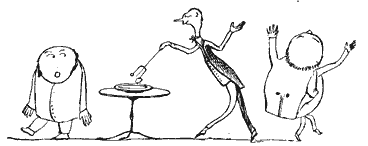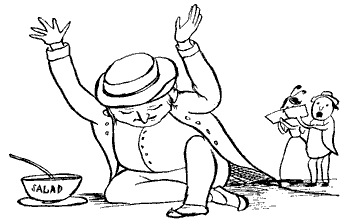There is a great deal of information available on how to eat today. So many books and articles have been written on achieving the best diet possible for weight loss, overall health or for specific ailments. However, everyone is different and it is very likely there is no single best answer to the question, "What should I eat?"
The other issue that is commonly ignored when dealing with diet and lifestyle change is, "What do I think and why?" Too often people are given a command to follow a particular regimen with little regard as to why. Understanding the concepts behind the commands are important as it frees people up to decide for themselves. We are much more likely to participate fully in a program we design for ourselves since we know ourselves best.
The challenge is then twofold:
1- To prepare yourself for the challenges ahead.
and
2- To arm yourself with information.
Self-Work
I've found that combining concepts from several sources of information can be better than just sticking to one method. This requires that you experiment a bit and that you know your own body better than the average Joe. It also requires you to think and make judgments about the information you receive.
Another quality you must possess is patience. Many food programs require time to work. It simply isn't possible to see results overnight and anyone that says otherwise is probably selling something. Be patient with the routines you adopt and patient with yourself. Making mistakes is part of being human. There is no need to punish yourself for failing. It happens. Gently pick yourself up and try again.
Becoming a good cook and a good eater also requires you to be an active participant in your own well-being. Leaving the decisions to someone else may be easier, but ultimately you are the one responsible for what you pick up and put in your body. You also might need to become a skeptic and question concepts that come from traditionally trusted sources like doctors, governments and other such institutions. This doesn't mean you should avoid advice from those sources, but understanding what factors contribute to certain advice can be very telling.
Perhaps the single most essential personal quality required for success is the desire to improve. By visiting this blog and reading this far, you've already proven that you are ready for change. In reality that's what is required of someone wishing to become healthier - making permanent changes for the better. The difference between losing weight and becoming healthier is that weight loss is often associated with temporary changes in diet or activity. Lifestyle change is what's required for maintenance of the healthful improvements to one's life. However no matter what anyone says, without the sustained desire to really help yourself there is no real way to succeed.
Books to Start With
The two books that have influenced the way I eat the most are Eat Right 4 Your Type: The Individualized Diet Solution to Staying Healthy, Living Longer & Achieving Your Ideal Weight
by Peter D'Adamo and The South Beach Diet: The Delicious, Doctor-Designed, Foolproof Plan for Fast and Healthy Weight Loss
Eat Right 4 Your Type suggests an optimal diet based on blood type and includes lists of foods most appropriate for each of 4 types. The South Beach Diet recommends control of blood sugar by carefully combining certain types of foods. Both books have an explanation of the concepts behind them refuted by scientific research. They are a great place to start for anyone interested in improving their diet and subsequently their health. Combining the styles of eating that these books suggest gives you a solid base from which to start experimenting.
These are two books that have worked for me. While they can be great introductions to some of the concepts I stick to, I urge you to go out and do some research of your own. You certainly don't have to stop at two books. Make learning about food a priority. Ask the people around you what has and has not worked for them.
(Images courtesy of public-domain.zorger.com )


No comments:
Post a Comment